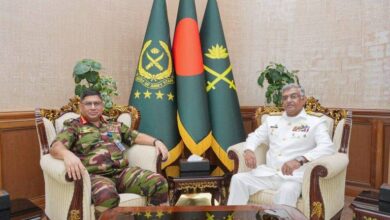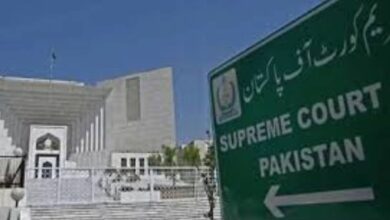In light of recent attacks by Afghanistan-based terrorists, Pakistan has urged the United Nations to prevent the war-torn country from becoming a hub for terror, while terming the Tehreek-e-Taliban Pakistan (TTP) a global and regional threat.
“We must ensure that Afghanistan does not become a breeding ground for terrorists that threatens not only its neighbours, but the region and beyond,” Pakistan’s Permanent Ambassador to the UN Asim Iftikhar Ahmad said while addressing a UN General Assembly’s plenary session on the situation in Afghanistan.
The ambassador’s remarks echo Pakistan’s repeated stance against the use of Afghan soil by terror outfits to carry out attacks.
Last week, the security forces eliminated at least 30 Indian-backed terrorists trying to infiltrate through the Pakistan-Afghanistan border in Khyber-Pakhtunkhwa’s North Waziristan district.
Pakistan has witnessed a surge in cross-border terror incidents since Taliban rulers returned to Afghanistan in 2021, particularly in the bordering provinces of Khyber Pakhtunkhwa and Balochistan.
The country saw a slight uptick in militant attacks in May 2025, even as heightened military tensions with neighbouring India failed to trigger a significant escalation in violence from extremist groups.
A day earlier, the two countries held the inaugural round of the additional secretary-level mechanism between the foreign ministries in Islamabad, with the two sides covering key areas of bilateral interest, including trade and transit cooperation, security, and connectivity. Both sides recognised terrorism as a serious threat to regional peace and security.
During the huddle, the Pakistani side emphasised the need for concrete actions against terrorist groups operating on Afghan soil, noting that such groups undermine Pakistan’s security and hinder regional development.
Expanding on the terror threat posed by groups from Afghanistan, Ambassador Iftikhar said that terrorism emanating from Afghanistan was a serious threat to the neighbouring countries, particularly Pakistan.
“Daesh continues to target the de facto authorities while other terrorist entities including Al-Qaeda, the TTP, and the Baloch militant groups, continue to operate from ungoverned spaces in Afghanistan.”
“Afghanistan must not become a safe haven for terrorism against any other country,” the envoy remarked while further highlighting that TTP, with around 6,000 fighters, remained the largest UN-designated terrorist group operating from Afghan soil.
“With cross-recruitment between various terrorist groups, including the TTP and Daesh, the TTP poses a threat not only to our national security but the region and the world,” the diplomat warned.
While lamenting continued attempts to transgress Pak-Afghan borders, the ambassador further accentuated the use of modern weapons, ammunition and sophisticated equipment by terrorists “to launch increasingly sophisticated attacks against Pakistan, including in the last two weeks”.
“These incidents underscore the scale and seriousness of the threat we face. Pakistan will continue to take all possible action to ensure the safety and security of its people.
“We also have credible evidence of collaboration between the TTP and other groups, such as the Balochistan Liberation Army (BLA) and Majeed Brigade, aimed at disrupting strategic infrastructure and economic development projects in Pakistan,” he said.
“Regrettably, Afghan soil also continues to be used by terrorists, often proxies, against other countries, particularly Pakistan,” the envoy added.
‘Afghanistan’s problems directly impact us’
Highlighting that Afghanistan’s problems directly impacted Pakistan, the ambassador said that the country hosted millions of Afghans for decades and continued to protect vulnerable Afghans despite its limitations.
“Since August 2021, an additional one million undocumented individuals crossed into Pakistan, creating among other issues, law-and-order concerns. The international community in our view must share this burden more equitably,” he noted while stressed the need for the revival of Afghan economy economy and banking system, including unfreezing of financial assets, and to enable trade and investment.
“Pakistan is committed to expanding trade and pursuing regional connectivity initiatives such as TAPI, CASA-1000, Uzbekistan-Afghanistan-Pakistan railway and extension of the CPEC to Afghanistan, that can contribute immensely to development and peace in Afghanistan and the region.
“For the first time in more than four decades, we have seen an end to fighting in Afghanistan. It has been nearly four years since the Taliban takeover. There is renewed hope for a better future for an Afghanistan at peace with itself, its neighbours and the international community.
“An Afghanistan which respects and nurtures all Afghans, regardless of considerations of gender, ethnicity, political affiliation or religion and a prosperous Afghanistan free from terrorism; fully integrated into the international community,” he concluded while stressing that Afghanistan must not be abandoned and that practical and pragmatic engagement through dialogue and diplomacy was the only way forward.







